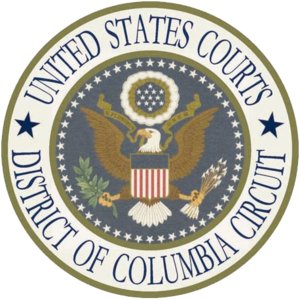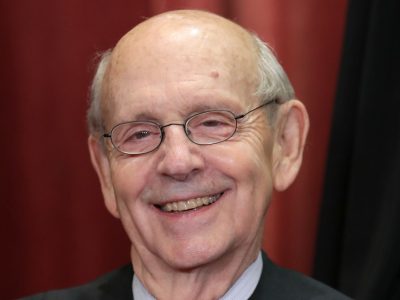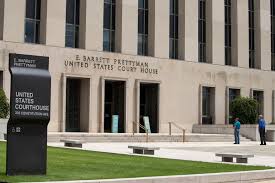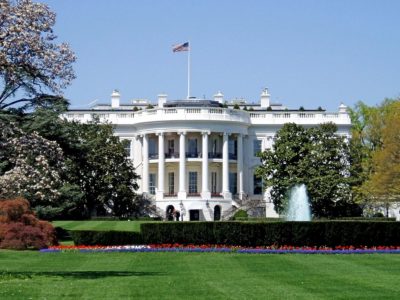U.S. Supreme Court
Liberal Judges Embrace Textualism
Why are these judges suddenly so enthusiastic about Justice Scalia’s approach to reading statutes?
Two of Trump’s major regulatory efforts were recently thrown out by the D.C. Circuit. The liberal judges who wrote the opinions latched onto a conservative theory called textualism, which was most prominently advocated by Justice Antonin Scalia. While judges in an earlier era tried to interpret Congress’s intent in writing a law, textualists focus solely …
Continue reading “Liberal Judges Embrace Textualism”
CONTINUE READINGJustice Breyer’s Nuanced Voice for the Environment
Not much for rhetoric, but a reliable vote for environmental protection.
Given Justice Breyer’s announced retirement, it seems like a good time to assess his contribution to environmental law. When Bill Clinton nominated him for the Supreme Court, there was a great deal of uneasiness among environmentalists about Justice Breyer. As an academic, he had sounded a cautious note about government regulation, calling for more deliberation …
Continue reading “Justice Breyer’s Nuanced Voice for the Environment”
CONTINUE READINGA Big Win for Climate Regulation
The DC Circuit overturns Trump’s effort to hamstring regulation of carbon from power plants.
The D.C. Circuit issued an opinion today knocking out Trump’s Affordable Clean Energy rule. The Trump rule was a rollback of Obama’s keystone climate initiative, the Clean Power Plan. The majority opinion plus dissent take up 185 pages, and I won’t try to describe it all here. Briefly, here’s what the appeals court ruled and …
Continue reading “A Big Win for Climate Regulation”
CONTINUE READINGClimate Change, Big Energy & The U.S. Supreme Court–What Could Possibly Go Wrong?
BP v. Baltimore Is First Environmental Case To Come Before Newly-Reconstituted High Court
On Tuesday, the U.S. Supreme Court will hear oral arguments in its first environmental case of the 2020-21 Term. That case, BP PLC v. Mayor and City Council of Baltimore, involves an important, nationwide climate change litigation trend, and will provide the first indication of the post-Ginsburg Court’s attitude towards environmental law and litigation generally. The Baltimore case is …
Continue reading “Climate Change, Big Energy & The U.S. Supreme Court–What Could Possibly Go Wrong?”
CONTINUE READINGRethinking Presidential Administration
Giving the President more control of regulation has been a good thing — up to a point.
Conservatives love to complain about faceless bureaucrats, but blaming bureaucrats for regulations is hopelessly out of date. When Elena Kagan was a professor, she wrote an article called “Presidential Administration.” The article applauded her former boss Bill Clinton for seizing greater control of the regulatory process away from agencies. That trend has accelerated to the …
Continue reading “Rethinking Presidential Administration”
CONTINUE READINGThe Year Ahead
Nine key developments to watch for on the environmental front.
2020 was a tumultuous year. Hopefully, 2021 will be balmier. Widespread use of vaccines will hopefully tame the COVID-19 pandemic, and maybe the political world will settle down a bit too. Here are nine key things to watch for in terms of environmental policy. The Georgia runoff elections. Currently, the Republicans look likely to control …
Continue reading “The Year Ahead”
CONTINUE READINGThe Ninth Circuit’s 10 Most Important Environmental Law Decisions of 2020
Climate Change, California v. Trump Cases Lead the List
This is the second of three year-end posts on the most important environmental law decisions in 2020 from the U.S. Supreme Court, U.S. Court of Appeals for the Ninth Circuit and California Supreme Court. (The key U.S. Supreme Court rulings were the focus of yesterday’s post, and tomorrow’s will feature California Supreme Court decisions.) Today, …
Continue reading “The Ninth Circuit’s 10 Most Important Environmental Law Decisions of 2020”
CONTINUE READINGThe U.S. Supreme Court’s Most Important 2020 Environmental Law Decisions
Clean Water Act, CERCLA, Native American Law and Trump’s Border Wall Lead the List
It’s become customary for critics and observers from many disciplines to publish a wide variety of lists at year’s end, nominating the most important or best movies, music, plays, etc. of the preceding year. Why not follow that tradition in the fields of environmental law and policy? With that objective in mind, I plan over …
Continue reading “The U.S. Supreme Court’s Most Important 2020 Environmental Law Decisions”
CONTINUE READINGWhat Could Trump Do with Four More Years?
He’s already rolled back almost everything Obama did. What next?
Given that Trump has rolled back nearly all of Obama’s regulatory efforts, what further harm could he do? Quite a bit as it turns out. If you agree with him that regulation achieves nothing and only stands in the way of prosperity, that should make you very happy. To begin with, Trump can do more …
Continue reading “What Could Trump Do with Four More Years?”
CONTINUE READINGClimate Policymaking in the Shadow of the Supreme Court
Amy Coney Barrett could shift how the Supreme Court approaches environmental regulations. Policymakers should prepare accordingly
By Ann Carlson, Amelia Keyes, Ben Harris and Dallas Burtraw (Cross-posted at Resources for The Future’s blog The confirmation of Amy Coney Barrett to fill the seat left by the late Justice Ruth Bader Ginsburg has catapulted the Supreme Court back onto the front pages of newspapers around the country. Though press attention has focused on …
Continue reading “Climate Policymaking in the Shadow of the Supreme Court”
CONTINUE READING









